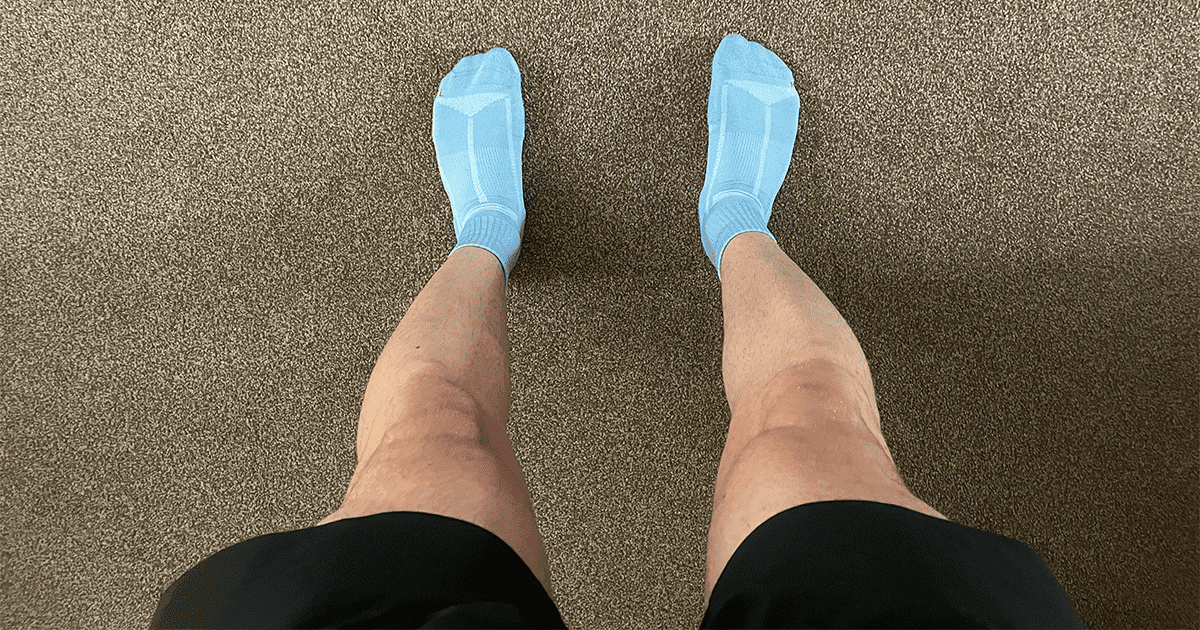Should I feel bad for dropping out of a running race?
It happens to the best of, sometimes we end up dropping out of a race. However, believe it or not, it really isn’t the end of the world.

Whether it’s a 5k, 10k, half-marathon, or even a marathon, it isn’t a pleasant experience and far from our goals to drop out of a race. However, sometimes there are very good reasons for dropping out of a race, while there can also be a few lingering consequences.
As with training, you must listen to your body during all of your running. Your body doesn’t care if you’re training or racing, if somethings wrong it’s going to let you know, even if that means throwing a hammer in the works, ruining your goals, and sidelining you a little earlier than you’d like.
It’s how we respond to our body that really matters. While it may be devasting to drop out of a race early, the fact is that there will be other races. Many of them, in fact. It’s much better than the alternative of picking up an injury and being unable to train or run for several weeks, months, or in some cases never again.
Related: 5 Tips to help you comeback from injury as a runner.
With that in mind, the remainder of this article will discuss when you should drop out of a race, why you may have dropped out, the benefits of dropping out of a race (yes, there are some!), and finally some potential consequences for cutting the rope early and calling it quits.
When should you drop out of a race?
It can be difficult to drop out of a race early, especially if you’ve put in weeks, months, or in some cases over a year of hard training to toe the line come race day. While no runner may want to drop out, it’s certainly better to know when then to be left to face the consequences.
There are many common symptoms which may cause a runner to call it quits and head home, these include:
- A familiar ache or pain (especially from a previous injury)
- A sharp or stabbing pain
- Chest pain or tightness
- If you hear or feel a muscle tear or even ‘pop’
- Severe dehydration
These symptoms should be taken seriously. A familiar ache or pain is usually a sign that if you continue, you will most likely cause injury, especially if where the ache or pain is, is at a sight of a previous injury.
1. A familiar ache or pain
If you’ve been injured in the past and notice a noticeable pain or ache at the sight of your previous injury, this is a good indicator to call it quits. Pushing through the pain and or ache will improve your risk of injury, potentially leaving you out the sport for a long duration – especially if you’ve injured the area before.
Likewise, if the pain isn’t familiar, this is also a cause for concern. While we’re not talking about general running pain – sore legs, struggling for breath, and a screaming desire to beat your personal best, we’re talking about anything abnormal and that doesn’t feel quite right.
Tip: If you were to experience the same pain during training and would call it early, make the same judgement if you’re running a race.
2. A sharp or stabbing pain
If you experience a sharp or stabbing pain, whether this is muscular or internal, we recommend slowing down or stopping and seeing if this pain eventually subsides. If it does, you may continue running. However, if the pain remains, you should stop running and seek medical attention immediately.
3. Chest pain or tightness

If you experience chest pain or even tightness, and this too does not subside quickly, you should also seek medical attention immediately. This could be a sign of something much more severe such as a heart attack.
Tip: You can usually find dedicated first aiders at aid/water stations, or scattered throughout the course. If unable to reach one, ask someone in the crowd or another runner to reach out for help on your behalf.
4. If you hear or feel a muscle tear or even ‘pop’
If you hear a pop or feel a muscle tear (if will be painful… and you will know about it), it’s best to stop immediately and throw in the towel. Continuing to run will not only be painful, but you’ll also cause much more damage than good, potentially leaving yourself injured from the sport for several months.
5. Severe dehydration
Signs of severe dehydration include feeling dizzy, a rapid heartbeat and breathing, a lack of energy, and feeling like you’re going to faint. While this may be difficult to identify when running, it is not normal to feel like dizzy, or like you’re going to faint during regular racing conditions.
If experiencing any of these symptoms, we suggest either slowing down or temporarily stopping to see if these symptoms go away. If not, it’s best to call it early and get some well-needed fluids down you.
What are the benefits of dropping out of a race early?

While dropping out of a race early may crush dreams and spiral us into defeat, believe or not there are actually numerous benefits to embrace, these include:
- The ability to reassess your training goals
- Reduced risk of injury
- Ability to regather your thoughts
- Protect yourself from any further danger or health condition
You see, if you were to finish a race which you supposedly should have dropped out of, you increase your risk of injury if you were experiencing these symptoms, can now reassess your training and set much more realistic goals, while also being able to regather your thoughts while understanding that you did the right thing.
Likewise, if you were experiencing chest pain or chest tightness, this is the perfect opportunity to get this further checked out to become fully clear on the cause. This will further protect your health while reducing the risk of this from happening in the future.
What are the potential consequences of dropping out of a race early?
While you may be protecting your health, unfortunately dropping out of a race early isn’t all sunshine and rainbows. In fact, it may have a few potential consequences which you should be aware of. These consequences should not encourage you NOT to drop out, however, instead should merely inform you of what you may experience.
- You may lose running and or training motivation
- Your goals may now seem unrealistic
- You may enter a training’ rut’
Related: When do you start to enjoy running?
If you’re experiencing some of these side-effects, just know that these will pass and your training motivation will return. In the meantime, to increase motivation, we encourage setting realistic long and short-term goals for your running and or training.
Should you feel bad for throwing in the towel?
The question you’re really here for – should you feel bad for dropping out of a race early? No! There are many good reasons to throw in the towel. Remember, there will be more races, but you only get one body. Look after yourself, listen to your body, and always remain positive and set realistic goals, even if this means dropping out of a race.
Understanding why you had to drop out in the first place

So, now that you’ve dropped out and have had time to process, and come to terms with it, you must now understand why you had to drop out in the first place. There is a wide variety of different reasons which may have influenced why you had to drop out, here are a few to consider:
- Preparation
- What was the course like?
- Were you training too hard or too little?
1. Preparation
Were you unprepared? Did you not train appropriately or within a reasonable time frame for your race? If so, this may be a key reason for dropping out. If your body is not accustomed to such intense running, you increase your risk of injury and certainly drop out symptoms.
To prevent this in the future, ensure to train within a reasonable time frame while training appropriately for the right distance.
However, if you were fully prepared, it may be worth considering if you were actually training too hard before racing.
2. Were you training too hard or too little?
So, maybe you were fully prepared but instead may have actually overtrained, even if you didn’t know it yourself.
Common signs of overtraining include:
- Lack of energy
- Lack of appetite
- Increased heart rate at rest
- Frequent minor infections
- Excessive sweating
Related: 8 Signs you may be overtraining as a runner.
Finally, just like overtraining, you may have actually trained too little. Not preparing in advance, logging those miles, and gruelling long runs may have left you vulnerable to not successfully completing your race. We suggest looking over your training and analysing both the volume and intensity. Too little, and this may be your answer.
3. What was the course like?

Finally, what was the course like, and what did you train for? If the course was muddy, hilly, and wet, yet you only trained on the flat, on concrete, and in the sun then you’ve must likely come unprepared.
Before racing, always check the course map, terrain, and elevation. If the course is hilly, train hills, if it’s muddy train on soft grass or mud, and if it’s slippy ensure to invest in appropriate footwear and most importantly practice running in these conditions.
To finish
You should never feel bad for dropping out of a race. There are a wide variety of reasons behind doing so, most of which you should be proud for making a judgement call and throwing in the towel – preventing any further damage to your body while reducing your risk of injury.

Matthew is a lifelong runner, chief tester of all products, the founder of Running101, and freelance content writer for active brands. When he’s not writing, he enjoys lifting weights, cycling in the Lake District, and watching fast cars drive in circles on a Sunday. He also has a BA in sport, exercise and physical activity from the University of Durham.




